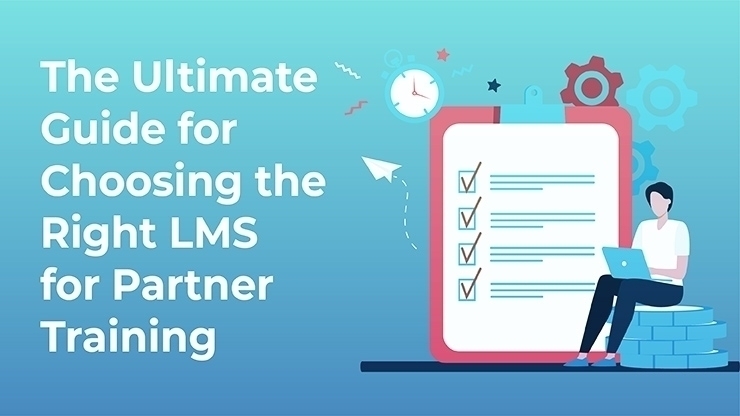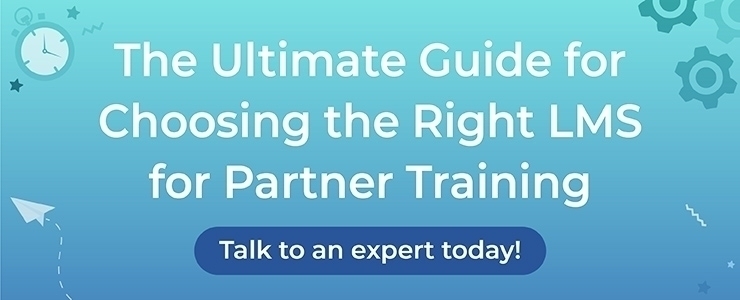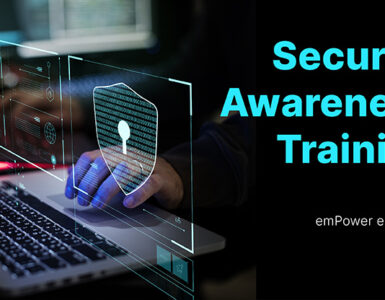Introduction:
In an increasingly interconnected digital landscape, the importance of comprehensive training for business partners can’t be overstated. Whether it’s for onboarding, product updates, skills development, or compliance, effective partner training can significantly impact your business’s bottom line. Key to this process is the Learning Management System (LMS) you use to deliver your training.
Choosing the right partner to train LMS is critical. It is the backbone of your training initiative, impacting everything from course creation to administration to the learners’ experience. However, with a myriad of options in the market, selecting the ideal system to meet your unique needs can be daunting.
To streamline your decision-making process, we have crafted a definitive checklist. This guide will outline the key features and functionalities to consider while choosing an LMS for your partner training. From essential functionalities like certifications and robust analytics to contemporary features such as mobile learning and gamification, this comprehensive checklist will assist you in making an informed choice.
Stay tuned as we walk you through each aspect in detail, enabling you to select a partner training LMS that meets your immediate needs and aligns with your long-term business objectives.
Certifications:
A reputable partner training LMS will be certified and comply with internationally recognized standards such as SCORM or xAPI. These certifications ensure the LMS can support your training needs interoperability, scalability, and long-term growth.
Analytics:
An LMS Training system should provide comprehensive analytics, capturing learning progress, course completion rates, learner engagement, and performance metrics. These insights can guide your training strategy, identifying areas of improvement and learner preferences.
Epic Integrations:
Ensure your chosen LMS seamlessly integrates with the other tools you use. Whether it’s HR systems, CRM, or email marketing software, integration allows for streamlined processes and a unified training experience.
Mobile Learning:
In today’s mobile-centric world, your partner training LMS must support mobile learning. It should offer responsive design, offline access, and mobile-friendly features, making learning accessible anytime, anywhere.
White-labeling:
Branding is essential. An LMS that offers white labeling will allow you to customize your learning portal, aligning it with your brand’s look and feel, promoting consistency and brand recognition.
User-friendly:
An intuitive, easy-to-navigate interface is key to a successful partner training program. Ensure the LMS is user-friendly, reducing the learning curve for both administrators and learners.
Personalized Learning Experiences:
An effective partner learning LMS should facilitate personalized learning paths based on individual needs, learning styles, and progress. This fosters engagement and improves learning outcomes.
Differentiated Learning Solutions:
Your chosen LMS should offer various learning options, including blended learning, self-paced learning, and instructor-led courses, to cater to diverse learning preferences and needs.
Gamification:
Gamification features such as points, badges, and leaderboards can enhance engagement and motivation. Consider an LMS that supports these elements to make learning fun and interactive.
Authoring Tools for Content Creation and Curation:
Look for an LMS that includes built-in authoring tools. This allows for easy creation, modification, and curation of engaging learning content, tailored to your needs.
Remote Content:
An LMS that supports remote content access and virtual learning is crucial in an increasingly remote work environment. This enables learning continuity, irrespective of geographical constraints.
Social Learning Tools:
Features like discussion forums, chats, and social sharing can foster a collaborative learning environment. Opt for a partner training LMS that supports these social learning tools.
Delegated Administration:
An LMS should allow for delegated administration, enabling different administrators to manage specific groups or areas within the system. This reduces the administrative burden and ensures efficient management.
Audience Grouping:
Creating and managing distinct learner groups based on parameters like roles, departments, or locations is essential in a training partner LMS. This ensures targeted, relevant learning experiences.
eCommerce:
If you plan to sell your courses, choose an LMS that supports eCommerce functionalities, like course catalogs, shopping carts, and secure payment gateways.
Virtual Learning Functionality:
Virtual classrooms and webinars facilitate synchronous learning experiences. Choose an LMS with strong virtual learning capabilities to replicate the benefits of face-to-face interactions.
On-the-job Training Verification:
Ensure your LMS can verify and track on-the-job training, allowing learners to apply their knowledge in real-world scenarios and validating their competencies.
Sophisticated Automation
Automation features can streamline tasks such as enrollment, reminders, grading, and more, making your training process more efficient.
Rules of Engagement
Finally, your chosen LMS should support setting clear rules of engagement, ensuring your partners understand what is expected of them, and fostering a productive learning environment.
Conclusion
Selecting the right partner training LMS is a strategic decision that can profoundly impact your training effectiveness and business outcomes. The array of features and options may make the process seem overwhelming, but using this definitive checklist, you can break down the process into manageable components.
Remember, there is no one-size-fits-all when it comes to LMS platforms. The perfect partner training LMS for your organization aligns with your specific training needs, goals, and the unique preferences of your partners. It should facilitate efficient LMS training and foster an engaging, personalized learning environment that motivates your partners and enhances their productivity.
As you embark on this journey, prioritize your needs, consider your budget, and review potential solutions with your end goals in mind. In doing so, you can make a confident decision that ensures your partner training LMS delivers effective training today and scales with your evolving needs, propelling your partners and your organization toward future success.







